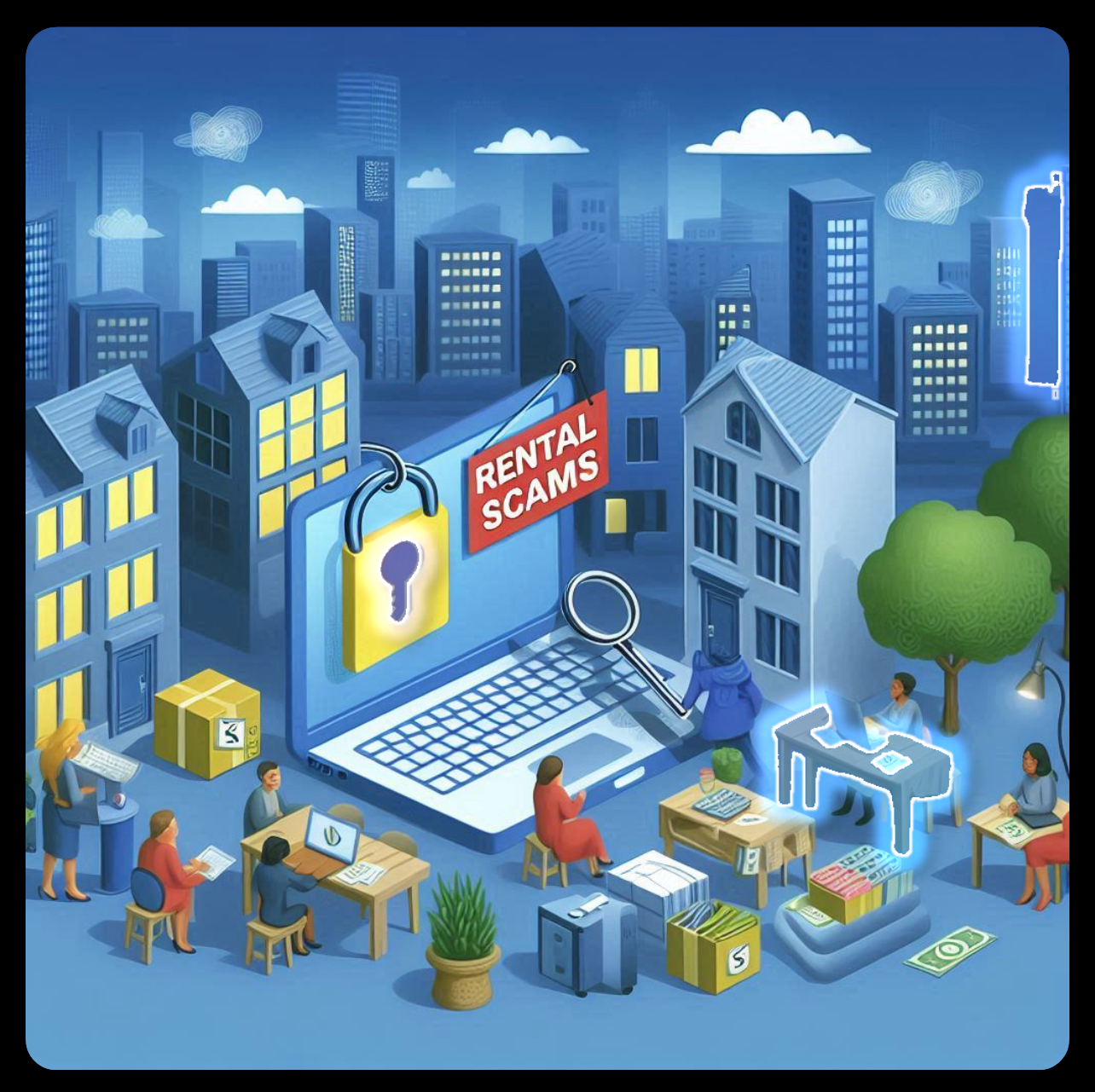How to Avoid Rental Property Listing Scams: A Guide for Renters
Rental property listing scams are designed to steal money from unsuspecting renters. Scammers often lure victims by asking for a security deposit or move-in fee without ever showing the apartment or rental unit. They pocket the money without any intention of renting out a legitimate property.
To help you avoid falling victim to these scams, we’ve outlined key warning signs, preventive measures, and steps to take if you find yourself ensnared by a fraudulent listing.
How to Identify Rental Property Scams
Here are seven red flags every renter should be aware of when searching for a place to rent:
1. Unwillingness to Meet in Person
If the person who posted the rental listing is unable or unwilling to meet you in person, consider this a major warning sign. Even if an in-person meeting isn’t possible, request a real-time video walkthrough of the rental to ensure the property exists.
2. Urgency to Move In Without Seeing the Property
Always see the property in person before signing a lease or sending any money, even if you meet someone claiming to be the landlord. Scammers often don’t have access to the property and will instruct you to inspect it from the outside. This is a clear sign of a scam.
3. Request for Money Before Signing a Lease
Never pay rent or a security deposit before signing a lease. Application fees are acceptable, but a legitimate landlord will not ask for a large sum of money upfront without a signed agreement. Be wary of requests to mail or wire money, especially to someone claiming to be overseas.
4. Unrealistically Low Rent Prices
If a rental price seems too good to be true, it probably is. Scammers often use low prices to attract potential renters quickly. Research market rates for comparable units to determine if the price is reasonable.
5. Poor Quality Listings
Be cautious of listings filled with typos, poor grammar, and excessive punctuation. Professional landlords and property managers take the time to create clear and accurate listings.
6. Lack of Tenant Screening Process
A good landlord will have a tenant screening process in place, including rental applications and credit checks. If these are not required, it’s a sign that the landlord may be a scammer or inexperienced.
7. Incomplete Lease Agreements
Never sign an incomplete lease. A landlord asking you to do so could potentially change terms without your consent. Ensure all parts of the lease are filled out and clear before signing.
How to Avoid Rental Scams
Before proceeding with any rental property, take the following precautions:
– Thoroughly Vet the Listing: Use the tips above to assess the legitimacy of the rental listing. If you notice any red flags, move on to the next option. Use trusted rental apps like Realtor.com®, which verify their listings.
– Meet the Landlord in Person: Ensure you meet the landlord or property manager to verify their legitimacy and get a sense of their professionalism.
– See the Property in Person: This step confirms the property’s existence and helps you decide if it meets your needs. It also gives you an opportunity to assess the landlord or property manager.
What to Do If You’re a Victim of a Rental Scam
If you fall victim to a rental scam, take these steps:
– Contact Local Authorities: They can investigate the scammer and potentially recover your money.
– Notify the Listing Website: They can remove the fraudulent listing and take action against the scammer.
– Report to the FTC: The Federal Trade Commission protects consumers from fraud. Report the scam on their website.
– File a Complaint with the IC3: The Internet Crime Complaint Center (IC3) works with the FBI and local authorities to address online scams. Report your experience on their website.
Happy renting! Stay vigilant and safe in your search for the perfect home.

 Facebook
Facebook
 X
X
 Pinterest
Pinterest
 Copy Link
Copy Link








